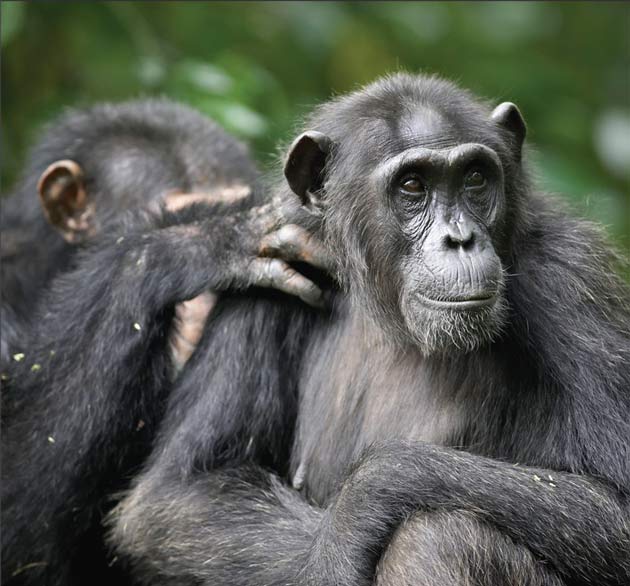Fertility Planning Makes Male Chimps Fight

Female chimps manage how available they are, as a group, for sex. This leads males to fight over them, and when the best males win, the females are more likely to have fit offspring, new research shows.??
Males and females of various species often manage when they have sex to influence their chances of having offspring. For instance, nearly all chimpanzee sex takes place when females are at the most fertile points of their menstrual cycles.
Curiously, females are known to sync up their menstrual cycles--and how fertile they are--in a number of primate species. Humans may synchronize menstrual cycles as well, although this remains controversial. Whether or not chimpanzees, the closest relatives of humans, sync up their menstrual cycles had been uncertain.
To shed light on this phenomenon, primatologist Akiko Matsumoto-Oda at Okinawa University and her colleagues investigated wild chimpanzees (Pan troglodytes schweinfurthii) at Mahale Mountains National Park in Tanzania by the shores of Lake Tanganyika. There, Japanese researchers have studied the chimpanzees for more than 40 years.
After analyzing nine years of data, the team found chimps actually avoided synchronizing their fertility. The findings are detailed in the March issue of the journal Behavioral Ecology and Sociobiology.
- Video: Monkey in the Mirror
The researchers speculate that female chimps do this to strive to have sex with the best males.
"Male chimpanzees coerce females into having sex with them, and this automatically limits the ability of females to choose their mates," researcher John Mitani, a primate behavioral ecologist at the University of Michigan, told LiveScience. By not having sex all the time, females may incite male-male competition over what fertile chimps there are at any given time.
Sign up for the Live Science daily newsletter now
Get the world’s most fascinating discoveries delivered straight to your inbox.
Such competition is thought to reduce the chances of females having sex with substandard males. It also increases the chance that a few males sire children across several females, Matsumoto-Oda told LiveScience, perhaps leading to stronger familial relationships across a community to bind it closer together socially.
- When A Woman Smells Best
- A Brief History of Human Sex
- Menstrual Period Now Optional
- The Sex Quiz: Myths, Taboos and Bizarre Facts
- Does the Full Moon Make People Crazy?










